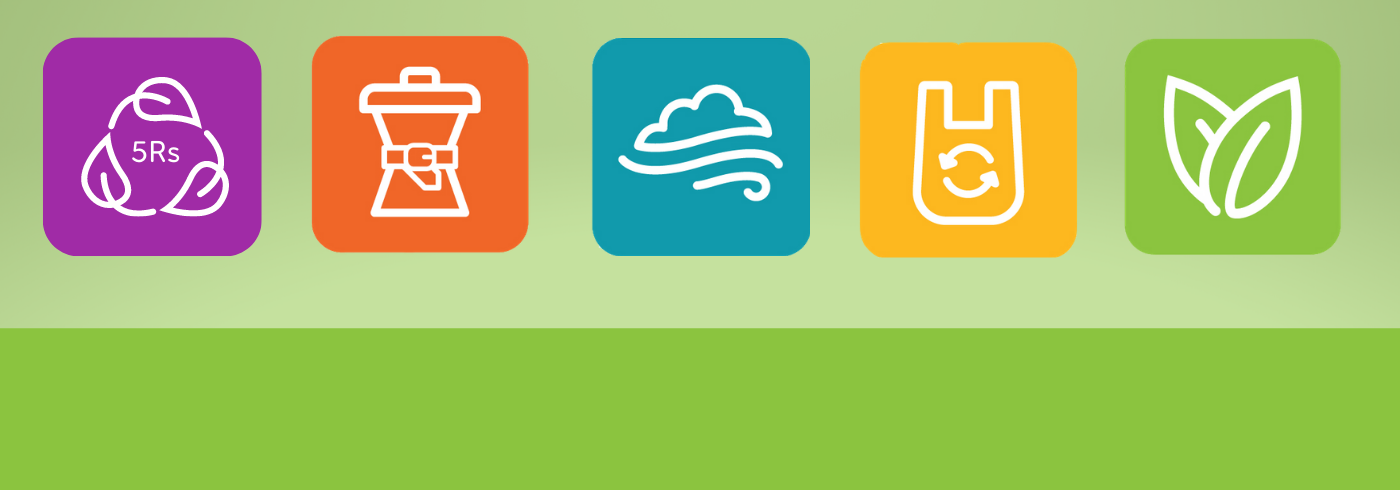
Long-term Waste Management Plan 2022-2040
Developed in consultation with Durham Region’s many stakeholders, the approved 2022 to 2040 Long-term Waste Management Plan (Waste Plan) is a roadmap that describes the Region’s Guiding Principles, Vision and Objectives for waste management over the next approximately 20 years.
The Waste Plan guides the Region in developing innovative ways to use waste as a resource in a circular economy, while demonstrating leadership in sustainability and mitigating environmental impacts. It emphasizes using the 5Rs (rethink, reduce, reuse, recycle and recover) as the first steps in reducing waste generation. The plan also outlines working with producers and importers of products and packaging to implement extended Producer Responsibility and adjust the Region’s waste programs, as required. As Durham Region’s diverse population continues to grow, the Waste Plan also highlights the importance of delivering cost effective and accessible waste management services.
Action Plans will support the Waste Plan by setting smaller goals and milestones for the Region to achieve while working towards long-term objectives. There will be a total of three action plans, each picking up where the last one left off; the timelines include short-term (2022 to 2026), mid-term (2027 to 2033) and long-term (2034 to 2040). Action plans, with measurable targets accompanying actions, will be reviewed, and updated as necessary to ensure they are aligned with corporate direction and associated legislation.
Guiding Principles, Vision and Objectives
|
Guiding Principles |
|
Regional Council endorsed the guiding principles, vision and objectives for the Long-term Waste Management Plan on January 27, 2021. These principles will help shape the goals of the new plan:
|
|
Vision |
|
Together, with our residents, we will reduce the amount of waste we create and manage the generated waste as a resource. We will build an innovative system, balancing financial needs and environmental sustainability. |
| Objectives |
|
Long-term Waste Management Executive Summary, Plan, Action Plan and Record of Consultation
| Long-term Waste Management Plan Executive Summary |
| Long-term Waste Management Plan 2022 to 2040 |
| Long-term Waste Management Plan Action Plan |
| Long-term Waste Management Plan Record of Consultation |
Waste Management Annual Reports
| 2023 Waste Management Annual Report |
| 2022 Waste Management Annual Report |
| 2021 Waste Management Annual Report |
| 2020 Waste Management Annual Report |
| 2019 Waste Management Annual Reports |
Frequently Asked Questions
|
What is a Long-term Waste Management Plan? |
|
A Long-term Waste Management Plan or Waste Plan for short is a document that describes the Region’s principles and objectives for waste management for the next 20 years. |
|
Why do we need a Waste Plan? |
|
Durham Region needs a plan to manage our waste for the next 20 years. We’ve accomplished great things with the old plan, now we need to look to the future. Now, more than ever, we need to consider:
Durham Region is also promoting innovation and environmental sustainability in its Strategic Plan. We’re looking to the future with clean energy solutions, green technologies, programs that divert waste, increasing resource recovery, and concentrating on efforts to reduce greenhouse gas emissions. |
|
What is the Five-Year Action Plan? |
|
The Five-Year Action Plan will complement the Waste Plan by setting smaller goals and milestones for us to achieve along the way to meeting our long-term objectives. There will be a total of four five-year action plans, each picking up where the last one left off. |
|
Has Durham ever had a Waste Plan before? |
|
Durham developed its first Waste Plan in 1999 and it covered the period of 2000 – 2020. Under the first Waste Plan, the Region expanded the Green Bin and Blue Box programs, increased its waste diversion rate from 30 per cent to approximately 63 per cent, and developed the made-in-Durham waste disposal solution in the Durham York Energy Centre. |
Contact Us




